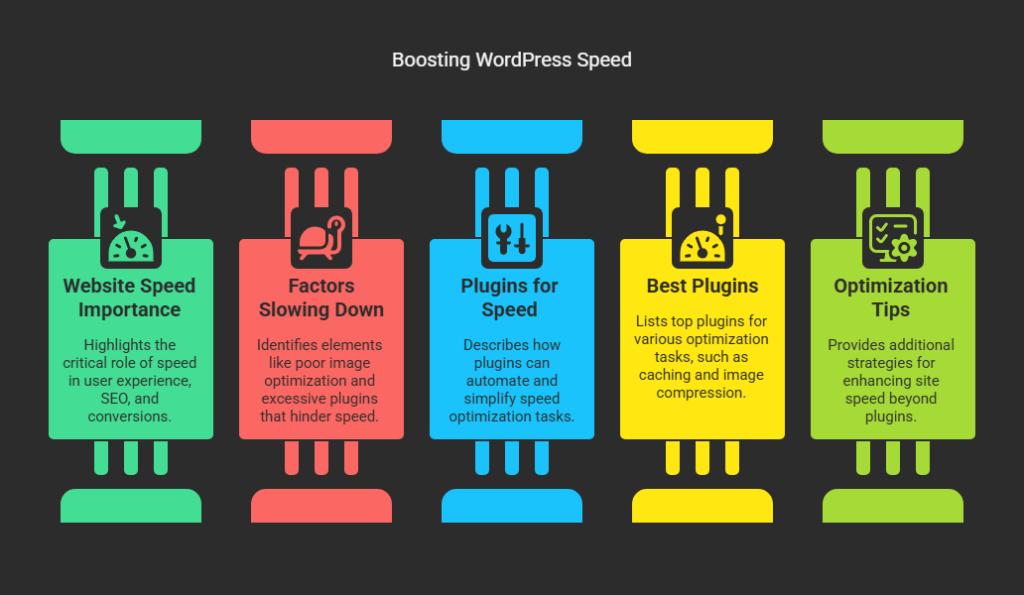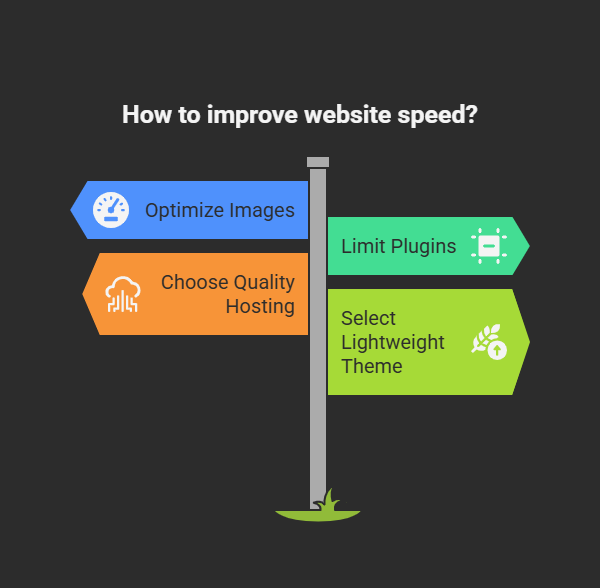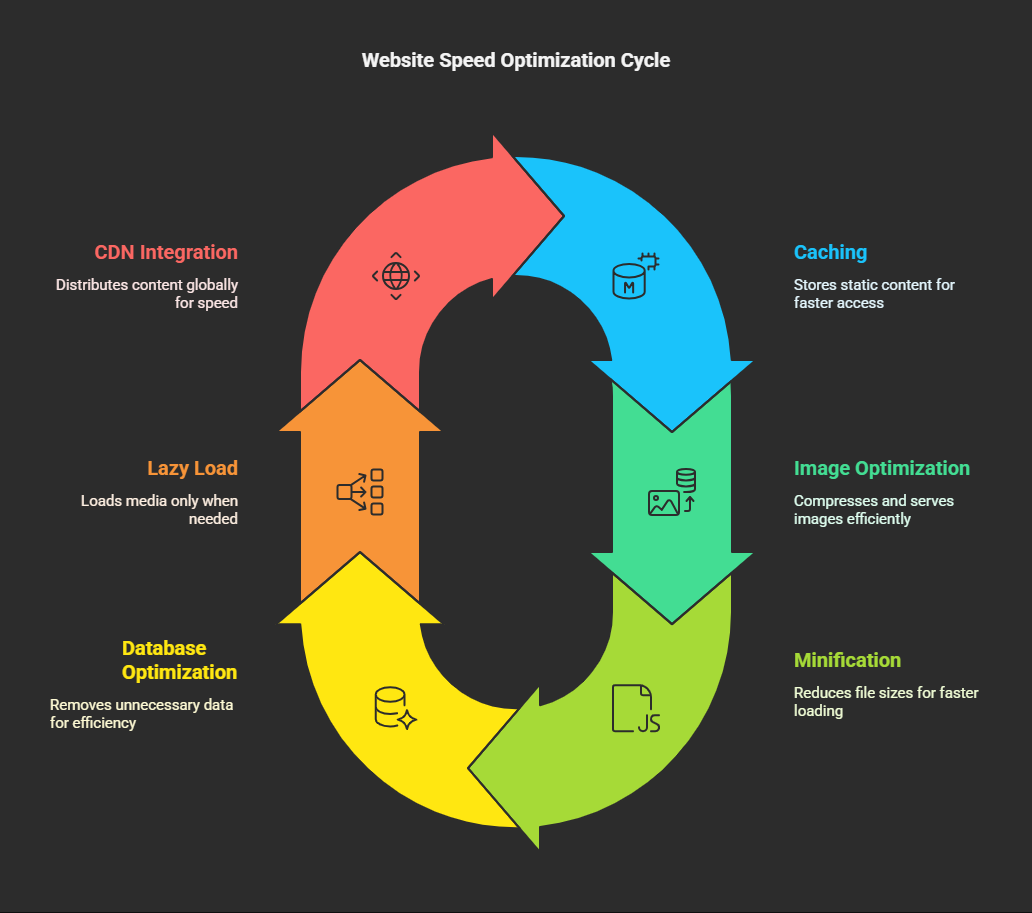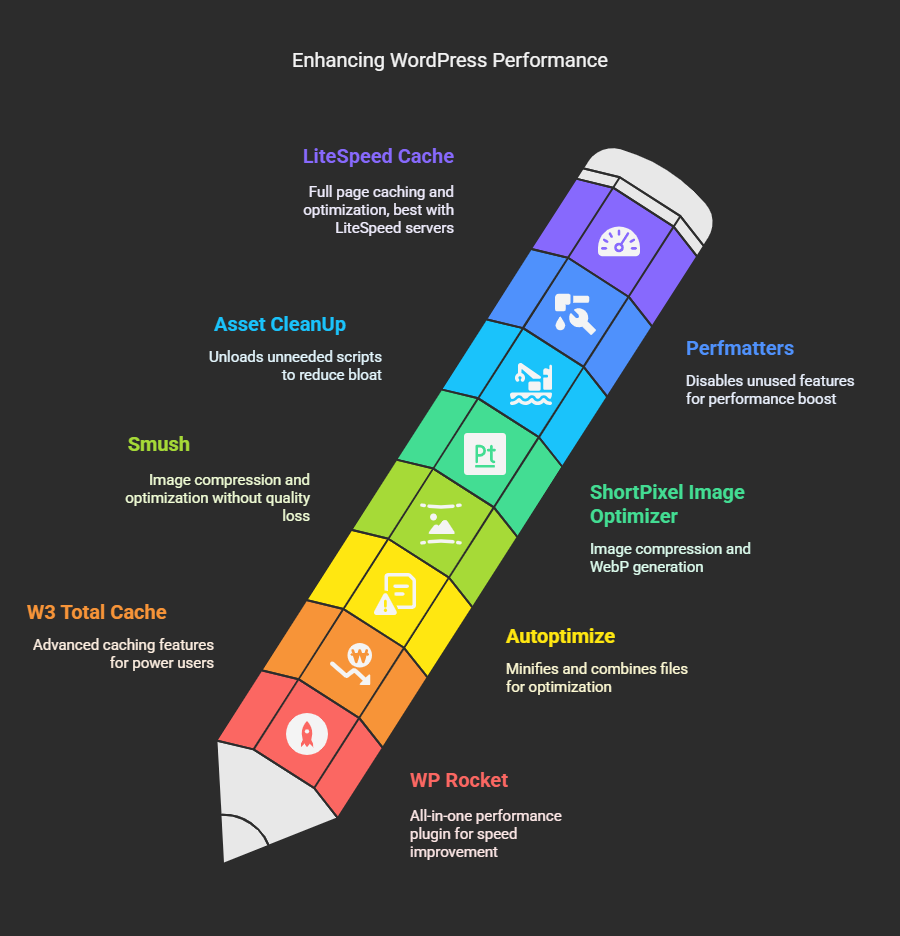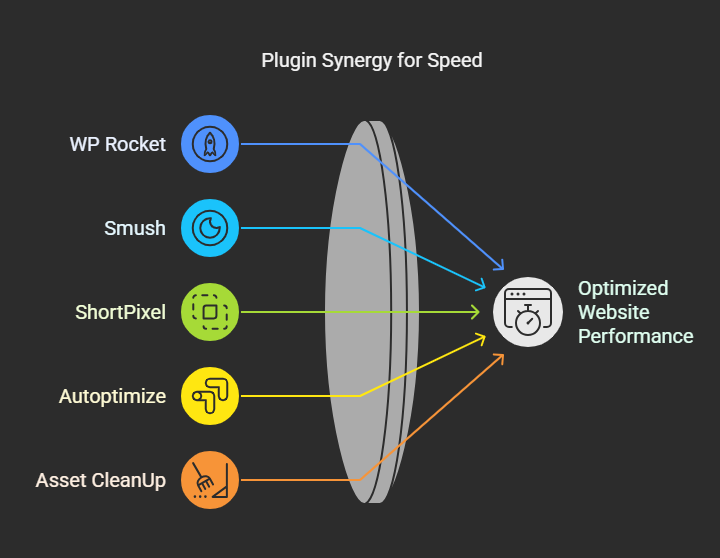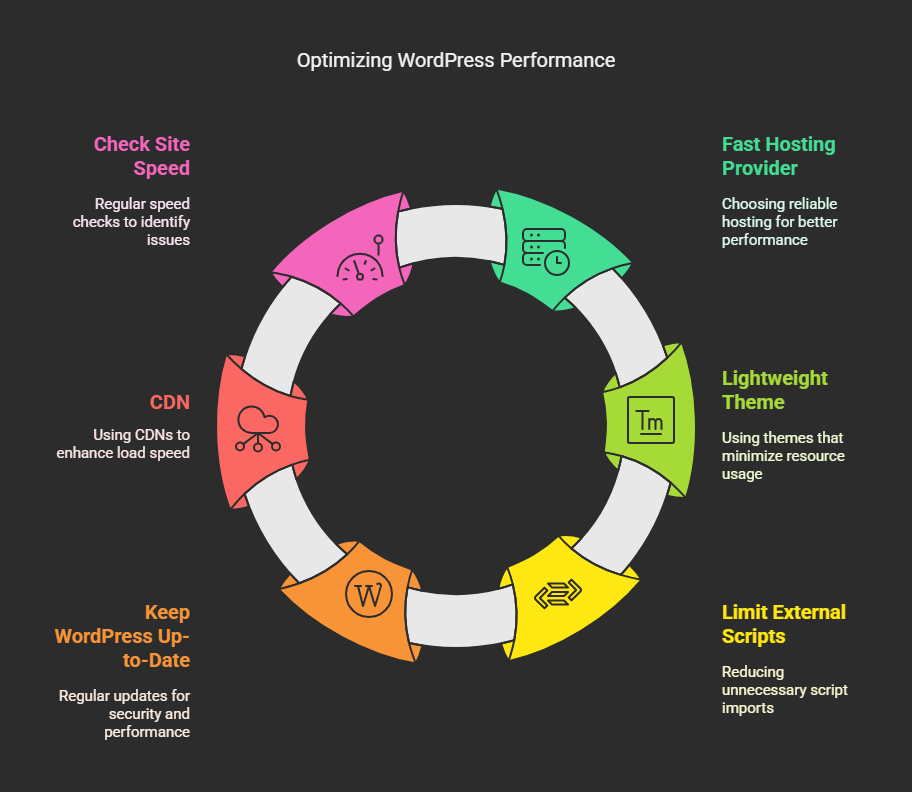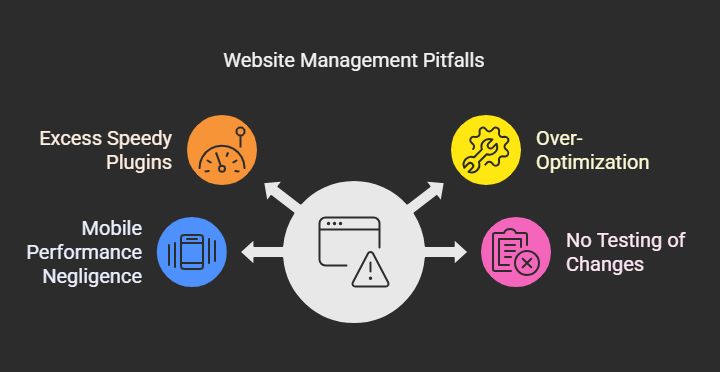A slow WordPress website is not uncommon. Slow websites lose traffic, customers, and even Google ranking. Luckily, one does not need to be a tech wizard to fix it. One of the simplest and most useful ways to optimize a WordPress site is to put the correct plugins to use.
In this blog post, we’ll take a detailed look at how plugins are important in increasing site performance and speed, the best ones to use, and pro tips to make sure they give you maximum benefit.
Why Website Speed Matters
Horsefly hats off now, let us have a glimpse of till what speed is so big:
➤User Experience: Visitors expect a website to load in less than 3 seconds; failing that, they jump off the site.
➤SEO Rankings: Site speed is one of the ranking factors for Google.
➤Conversion Rates: Faster websites increase conversion rates and provide more sales.
Awareness of the Factors in Slowing Down a WordPress Website
The site can become sluggish due to many factors, such as:
➤Poor Optimization of images
➤Excessive plugins used
➤Hosting with no quality
➤Heavy themes
➤Javascript and CSS render blocking
➤No cache
➤External scripts (ads, fonts, analytics)
Knowing the problem is half the process but the other half is fixing it with the plugins.
How Plugins Can Help
Some plugins allow speed optimization tasks to be automated and made open to even non-developers. This is how they help:
➤Caching: Keeps static versions of your content so it loads faster.
➤Image Optimization: Responsible in compressing and serving images efficiently.
➤Minification: It shrinks CSS, JS, and HTML files.
➤Database Optimization: Cleans and clears out unnecessary and unused data.
➤Lazy Load: Any media is loaded only when it is needed.
➤CDN Integration: Delivers content faster worldwide.
Best WordPress Plugins to Speed Up Your Website
Let’s break down the best plugins to use for various performance tasks:
1. WP Rocket (premium)
➤All-in-one performance plugin
➤Page caching, browser caching, GZIP compression,
➤Database cleaning and lazy loading
➤CDN integration
Ideal for: It’s super user-friendly and just works fantastically. Without custom setting it, speed improves.
2. W3 Total Cache (Free)
➤More of an advanced caching feature
➤Minifies HTML, CSS, JavaScript
➤CDN support
Ideal for: More power users who need more customization.
3. Autoptimize (Free)
➤It minifies scripts and styles.
➤It combines and caches files.
➤It integrates with other caching plugins.
Ideal for: WP Super Cache or W3 Total Cache for best results.
4.Smush (rather free or pro)
➤Compression of images and lazy loading
➤Bulk and optimize images,
➤Visible No Quality Loss in Images
Ideal for: Auto-optimize on image upload.
5. ShortPixel Image Optimizer (Free & Premium)
➤Lossy, glossy, and lossless image compression
➤WebP image generation
Ideal for: Excellent for large media-heavy sites.
6. Asset CleanUp (Free & Pro)
➤Unload unneeded scripts and styles
➤Removes bloat from unused plugins
Ideal for: Your Theme or the Plugins load too many files on every single pages.
7. Perfmatters (Premium)
➤Weightless Performance Booster Plugin
➤Disable unused WordPress Features
➤Prefetch, lazy load, script management
Ideal for: Developer pays off well and site owner who wants that extra boost.
8. LiteSpeed Cache (Free)
➤Full page caching
➤Optimization of images, minification
➤CDN Integration, database cleanup
Ideal for: LiteSpeed web server; works with others too.
Combining Plugins for Maximum Speed
You can combine any number of plugins together as long as they don’t overlap and don’t conflict. Here is an intelligent combination:
➤WP Rocket for caching;
➤Smush or ShortPixel for image optimization;
➤Autoptimize for script and style minimization;
➤Asset CleanUp to unload unwanted assets.
Warning: Just don’t overdo it! Too many plugins will start to slow the whole thing down.
Ultimate Pro Tips and Means for Further Site Optimization
Plugins help, but combine them with best practices:
➢Choose a Fast Hosting Provider: Hosting is the foundation. Go with providers like SiteGround, Cloudways, or Kinsta.
➢Use Lightweight Theme: Astra, GeneratePress, or Hello Elementor would be great choices.
➢Limit External Scripts: Import only the absolutely necessary, such as Google Fonts or Analytics.
➢Keep WordPress Up-to-Date: Update the theme, plugin, and WordPress version itself.
➢CDN: With Cloudflare or BunnyCDN, your load speed will be greatly optimized.
➢Check Site Speed: We would recommend GTmetrix, PageSpeed Insights, or Pingdom.
Common Mistakes to Avoid
➢Use Excess Speedy Plugins
➢Over-Optimization ( design or functionality breaks)
➢Mobile Performance Negligence
➢Don’t Test Any Changes Made
Always take a backup of your site before trying out any new plugins or settings!
Conclusion
Able to speed up your WordPress site without headaches. Speed optimization can bring great performance improvement, SEO ranking improvement, and customer satisfaction when implemented with the right mix of plugins and smart practices.
Going little by little, optimizing on what actually makes a difference – that is the way forward. You’ve got this!
What are your favorite speed optimization plugins? Any tricks that you would like to share? Let me know your suggestions in the comments!


